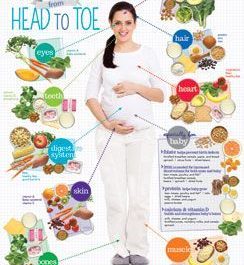As teenagers go through a period of rapid growth and development, proper nutrition becomes crucial to ensure healthy development. Consuming a balanced diet is not only essential for physical well-being but also plays a significant role in mental health and overall academic performance.
1. Essential Nutrients for Teens
During the teenage years, the body requires various nutrients to sustain growth and development. These include:
Proteins: Essential for building and repairing tissues.
Carbohydrates: Provide energy for physical activities and brain function.
Fats: Necessary for hormone production and absorption of fat-soluble vitamins.
Vitamins and Minerals: Play a vital role in various bodily functions and overall health.
Water: Hydration is essential for maintaining bodily functions and concentration.
2. Adequate Caloric Intake
Due to their active lifestyles and rapid growth, teenagers often require more calories than adults. However, it is crucial to focus on the quality of calories consumed rather than simply increasing intake. Encourage teens to choose nutrient-dense foods such as fruits, vegetables, whole grains, lean proteins, and low-fat dairy products.
3. The Role of Protein
Protein is critical for teenagers as it aids in the growth and repair of tissues. Including sources of protein such as lean meats, fish, eggs, legumes, and nuts in their diet is essential. Encourage the incorporation of plant-based proteins for a more sustainable and diverse diet.
4. The Importance of Carbohydrates
Carbohydrates are the body’s primary source of energy. Encourage teens to choose complex carbohydrates like whole grains, fruits, and vegetables over refined carbohydrates found in sugary snacks and sodas. Complex carbs provide sustained energy levels and aid in maintaining focus throughout the day.
5. Fats and Brain Health
Although fats have often been associated with negative health effects, it is essential not to ignore their importance in brain development and overall health. Encourage the consumption of healthy fats found in foods such as avocados, nuts, seeds, and fatty fish, while limiting saturated and trans fats commonly found in processed and fried foods.
6. The Power of Vitamins and Minerals
Vitamins and minerals are crucial for teens’ overall health and well-being. Encourage the consumption of a variety of fruits, vegetables, whole grains, and dairy products to ensure an adequate intake of essential vitamins like vitamin C, A, D, and minerals like iron, calcium, and potassium.
7. The Importance of Hydration
Proper hydration is often overlooked but plays a vital role in maintaining overall health and cognitive function. Encourage teenagers to drink water throughout the day and limit sugary beverages. Keeping a reusable water bottle with them can serve as a reminder and make it easier to stay hydrated.
Teenagers require a well-balanced diet that consists of essential nutrients to fuel their bodies and minds during this crucial phase of growth and development. By providing adequate nutrition, we can help them stay physically healthy, mentally sharp, and optimize their overall academic performance. Encourage healthy eating habits and educate them on the importance of consuming nutrient-dense foods to set a foundation for a lifetime of good health.




